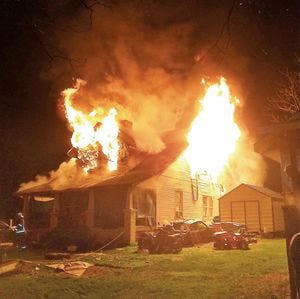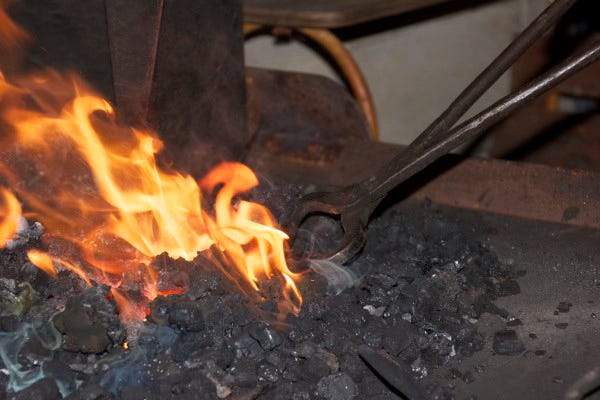In the danger that the fire comprised and the safety of its control, I began to understand “heroism.” My father did not win the word hero—not in combat, by definition not a hero, no medal of honor, no wound—no purple heart.
“Heroism” is a big word often used loosely. It is a word that is central to this story. I am sure of it the way I am sure that Lena would have wanted to know about the fire. She would not have thought “obsession,” as perhaps you do. She would have understood what I meant when I called the fire “a direct hit.”
I keep a list of heroes, of people who save others, who receive awards for these acts: A man in Nova Scotia saved a man and his seven-year-old son from a fiery auto accident. A sixty-two-year-old man in San Diego pulled his eighty-four-year-old neighbor from a fire. A twenty-seven-year-old man of Centralia, Illinois, rescued a man from a burning house. A twenty-seven-year-old of Dalles, Oregon, rescued two eleven-year-old girls from an apartment fire. A twenty-five-year-old man of Syracuse, New York, a twenty-four-year-old man of Oswego, New York, and a thirty-five-year-old of Webster, New York, together saved a woman from electrocution when a 300-ton crane at a construction site overturned and pulled electrical wires onto her car.
But I am like the woman who, when her house was on fire, rescued her fire tongs. △






Yay prose! I do adore your voice, but like I said, sometimes things get lost between my ears and my brain. I should get Dave to read me bedtime stories more. ;)
This line is so funny, crass, tragic and open-ended...
"But I am like the woman who, when her house was on fire, rescued her fire tongs."
Having watched a fire from beginning to end ~ actually a fire storm, that swept through our part of Portugal one memorable night in October 2017 ~ I can relate to the pragmatic thinking of fire tongs...